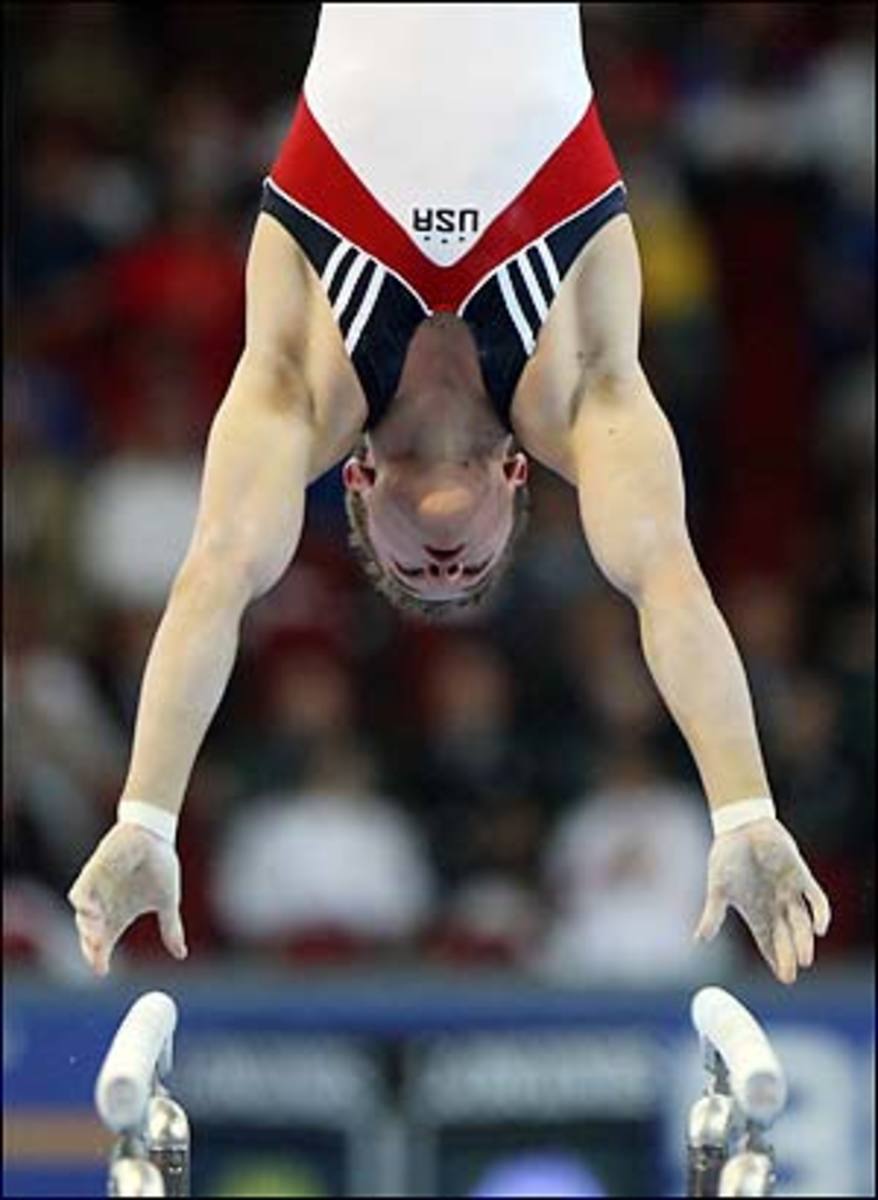
Full of promise
Three days ago, few outside the team itself thought the U.S. had a bratwurst's chance in a beer hall of winning a medal at these Worlds, so unheralded was this group. The team had finished a dispiriting 13th last year when the championships were held in Denmark, and the twins who'd led the U.S. men to the silver medal at the 2004 Olympics, Paul and Morgan Hamm, were back in the States, having resumed training too recently to make the team.
But after qualifying for the finals (and for the Beijing Olympics) by finishing fourth in the qualifying round on Tuesday, the young Americans found themselves in fourth place after the first four rotations of the finals, a slim .225 behind third-place Korea.
They had only the high bar and the floor exercise left. The U.S. had scored fewer points in the high bar during qualifying than they had in any other discipline, and it didn't take long on Thursday to see why. U.S. all-around champ David Durante was up first and missed the bar on his third release move, a layout Tkachev, and belly flopped to the mat. He scored a disappointing 13.575.
The next American, Alexander Artemov, tried a similar release move called a Kovacs, and launched himself so far from the bar he couldn't have caught it with a grappling hook.
Thwack! Face plant to the mat.
Artemov's 13.75 score effectively torpedoed any chance the U.S. had left for a medal, but the third and final American up on the high bar, Jonathan Horton, wasn't taking any chances. He nearly smashed his face on the bar each time he returned from a release move. "I hit my releases a little close on purpose," said Horton, the top U.S. point scorer on the night. "I did not want to fall. Those two mistakes on the high bar ... that was it."
Three great floor exercise routines by Sean Golden, Guillermo Alvarez and Horton in the final event moved the team up to its fourth-place finish, which was 1.25 points shy of bronze medal winning Germany and a whopping 9.635 points behind China. (Japan was second, 4.87 points behind.) The Chinese men, with three straight World team titles, are in a class by themselves right now, and will be prohibitive favorites to capture Olympic gold in Beijing.
But after their showing in Stuttgart, the American men can hold their heads high. "The big picture is we're back in the game," said U.S. team coordinator Ron Brant. "The team will feel OK by this finish, but knowing this group, they won't be satisfied. They went from non-existent in the world to having a medal in their grasp. That's a pretty big step."
"Coming from 13th to fourth in one year is a huge feat, but there's room for improvement," said Golden. "In the finals, where all three scores count, if you open the door, someone's going to walk through it. We opened the door. This championships was bittersweet. We know we could have been on the podium."
There's no disputing that. In that one high-bar routine Germany outscored the U.S. by 2.825 points, more than twice the margin that separated third place from fourth. With the Olympics less than a year away, and the possibility that the Hamms -- one or both -- will make the team next year, the U.S. men suddenly are a factor again in international gymnastics.
And they're hungry for more. "It was a great experience," said Kevin Tan, who competed in rings, pommel horse, and parallel bars. "But the thing about a fourth-place finish is it leaves a taste in your mouth that feeds your motivation for next year."
Bring on Beijing.




